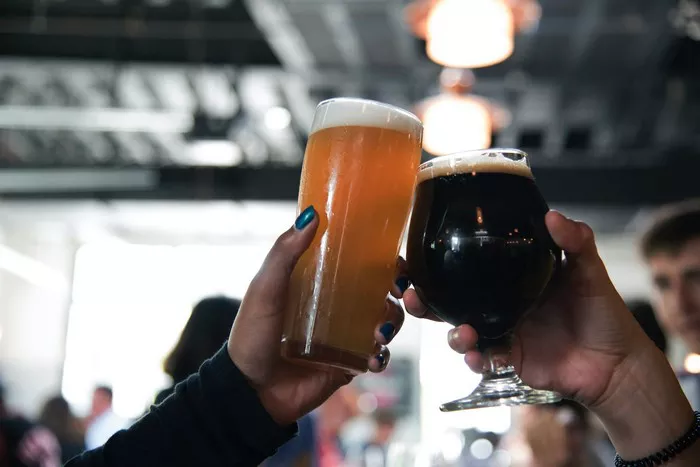Beer, a beloved beverage with a history as rich as its flavor, owes much of its distinct taste to one key ingredient: hops. But where do these essential cones, responsible for imparting bitterness, aroma, and stability to beer, come from? Understanding the origins of hops unveils a fascinating journey that intertwines agriculture, culture, and the craft of brewing.
The Agricultural Roots of Beer: Cultivating Hops
Beer, the world’s oldest alcoholic beverage, has a long-standing relationship with agriculture. And at the heart of this agricultural connection lies the humble hop plant (Humulus lupulus). Hops are perennial climbing vines that belong to the Cannabaceae family, closely related to hemp. Originating from the temperate regions of Europe, hops have been cultivated for centuries for their use in beer production.
Exploring the Geography of Beer: Hops Around the Globe
The cultivation of hops is not confined to one corner of the world; rather, it spans diverse regions, each contributing unique characteristics to the beers they produce. From the lush hop fields of the Pacific Northwest in the United States to the traditional hop gardens of Bavaria in Germany, beer enthusiasts can trace the geographic diversity of hops in their favorite brews. The choice of hop variety and origin can significantly influence the flavor profile of beer, highlighting the interconnectedness of geography and taste in the world of brewing.
Brewing Traditions and Hops: A Historic Alliance
Beer, deeply embedded in cultural traditions worldwide, has shaped the cultivation and use of hops throughout history. In regions like Bavaria, where brewing traditions run deep, hops are revered for their role in producing iconic beer styles such as Märzen and Weissbier. Similarly, the British Isles have a long history of hop cultivation, with varieties like Fuggle and Goldings imparting their distinct flavors to classic ales like IPA and ESB. Understanding the historical context of brewing traditions unveils the symbiotic relationship between culture and hops in shaping the diverse landscape of beer.
See Also: Does Beer Make You Dehydrated?
The Craft Beer Revolution: Hops as Artistic Expression
In recent decades, the craft beer revolution has ushered in an era of experimentation and innovation in the world of brewing. Craft brewers, driven by a passion for flavor exploration, have elevated hops to the forefront of their creative endeavors. From single-hop IPAs showcasing the unique characteristics of individual hop varieties to bold, hop-forward double and triple IPAs pushing the boundaries of bitterness and aroma, craft beer has become a canvas for hop-centric expression. This artistic approach to brewing highlights the versatility and complexity of hops in shaping the sensory experience of beer.
Sustainable Agriculture and Hops: Nurturing the Future of Beer
As the demand for craft beer continues to rise, so does the importance of sustainable agriculture in hop production. With concerns about climate change and environmental impact looming large, hop growers are increasingly turning to sustainable practices to ensure the longevity of their crops. From organic farming methods to water conservation initiatives, the beer industry is embracing a holistic approach to agriculture that prioritizes environmental stewardship. By investing in sustainable practices, brewers and hop growers alike are not only safeguarding the future of beer but also preserving the delicate ecosystems that sustain hop cultivation.
Innovation in Hop Breeding: Pioneering the Future of Beer Flavors
The quest for new and exciting hop flavors has spurred innovation in hop breeding, leading to the development of novel hop varieties with unique aromatic profiles. Through traditional breeding techniques and cutting-edge biotechnology, hop breeders are continuously pushing the boundaries of flavor possibilities in beer. Varieties like Citra, Simcoe, and Mosaic have gained widespread acclaim for their tropical fruit, citrus, and pine resin aromas, showcasing the potential for innovation in hop cultivation. As brewers continue to experiment with these new hop varieties, the future of beer flavors remains bright and full of possibilities.
The Global Impact of Beer: Hops as a Cultural Ambassador
Beer, with its ability to bring people together across borders and cultures, serves as a cultural ambassador in the global community. Hops, as a fundamental ingredient in beer production, play a crucial role in shaping the cultural exchange facilitated by the brewing industry. Whether it’s a Belgian Trappist ale brewed with European noble hops or an American craft IPA showcasing the bold flavors of Pacific Northwest hops, beer transcends linguistic and cultural barriers, fostering connections and understanding among diverse communities. In this way, hops contribute not only to the flavor of beer but also to its role as a unifying force in a multicultural world.
Conclusion: Celebrating the Diversity of Beer Through Hops
Beer, a beverage steeped in tradition yet constantly evolving, owes much of its character to the humble hop. From its agricultural roots to its cultural significance, hops embody the essence of beer in all its complexity and diversity. As the craft beer movement continues to flourish and beer enthusiasts seek out new and exciting flavors, the journey of hops remains an integral part of the brewing experience. By celebrating the origins of hops and embracing their role in shaping the world’s favorite beverage, we honor the rich tapestry of beer culture and the enduring legacy of this timeless ingredient. So let us raise a glass to the mighty hop, guardian of flavor, arbiter of bitterness, and steadfast companion on the journey of beer. Cheers!


